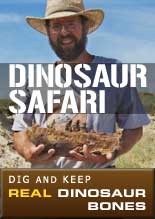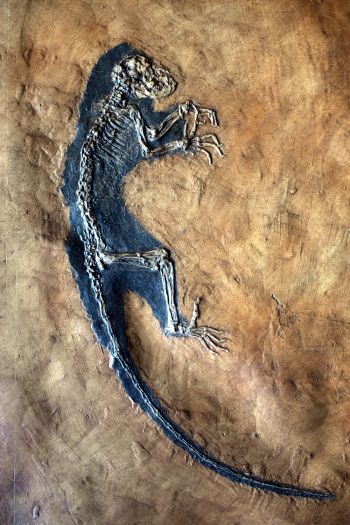
This specimen is a direct cast from the original specimen of Darwinius masillae.
Darwinius masillae - "Ida" was discovered in 1983 and described scientifically in 2007. The genus Darwinius was named to commemorate the bicentennial of the birth of Charles Darwin and the name masillae honors the location where it was found. The fossil is 23 inches long with the head and body making up about 9.4 inches of this length.
The authors of the paper describing Ida classified her as a member of the primate family Notharctidae and the superfamily Cercamoniidae, which suggests that it is a significant transitional form, or link between prosimian and simian (anthropoid) primate lineages. Not everyone agrees with the placement.
Ida is the third species of primate to be discovered at the Messel quarries and belongs to the family adapiforms, which were early primates that are only found in the fossil record.
Ida's teeth revealed that she had unerupted molars in her jaw, indicating that she was a juvenile probably 9-10 months old, with full adulthood being reached at 36 months. The shape of her jagged molars would have allowed her to slice food, such as leaves and seeds. This is confirmed by the gut contents. The lack of a baculum (penis bone) found in all lower primates, indicates she was a female. She shares some characteristics with prosimians (like lemurs), but lacks the toothcombs and grooming claw which are lemur attributes. She does have opposable big toes and nail bearing fingers which confirm her to be a primate. A foot bone called the talus bone links Ida to humans.
The original specimen was purchased by the University of Oslo Natural History Museum in Norway for about $750,000.00
You will find that nearly all specimens from Messel, Germany will be encased in epoxy, resin or Lucite. This is due to the fact that the shale layers that the fossils are found in are made up of about 40% water and 8% oil, When the water evaporates, the shale and the fossils become very unstable and they turn to powder. The surface of the fossils are stabilized with resin, to prevent this decomposition, and later, as time permits, they are further prepared and encased in resin or Lucite.
High Density Polyurethane
22x15.5" plate 16" fossil
Item 3215
Category: Replicas
Type: Skeletons
Phylum: Vertebrates
Class: Mammals
MORE PHOTOS:
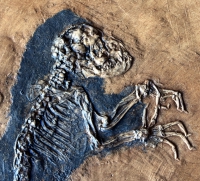
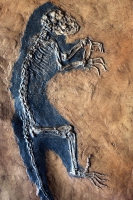
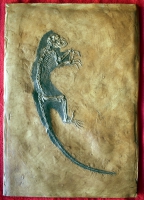

Now Over 1,000 Items!
PrehistoricStore.com offers the largest selection of replica fossils and other fossil-related products anywhere in the world!
Download a Full Catalog (3MB PDF)
OVER 260 PAGES OF REPLICAS AND MORE!
